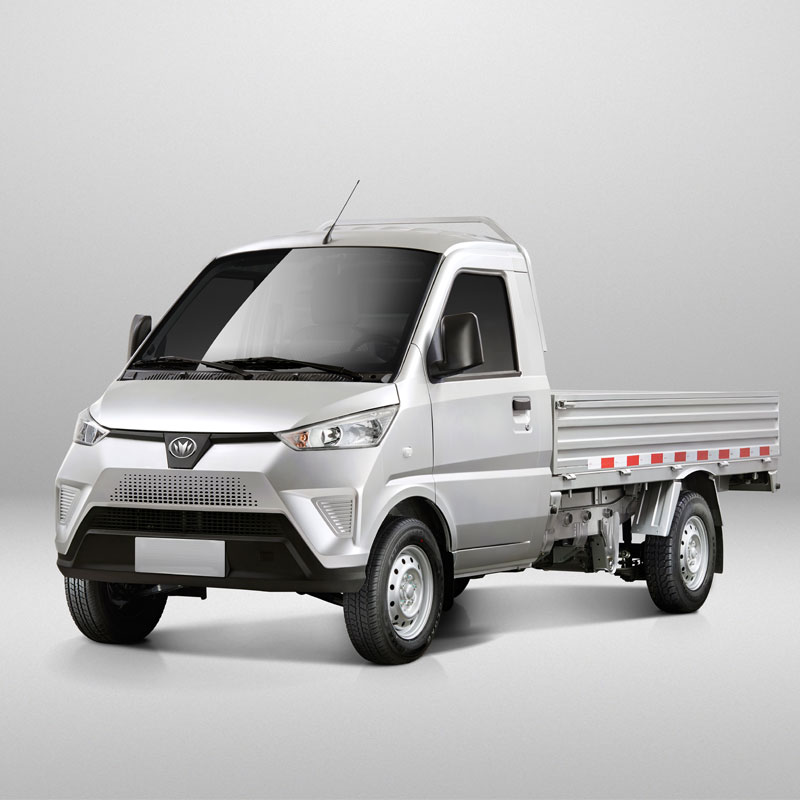What are the technical advantages of Mini Truck?
2025-09-28
Table of Contents
-
Unpacking the Mini Truck: More Than Just a Small Vehicle
-
Key Technical Advantages of a Mini Truck
-
Detailed Technical Specifications
-
Frequently Asked Questions (FAQ)
1. Unpacking the Mini Truck: More Than Just a Small Vehicle
In the world of commercial and personal utility vehicles, the Mini Truck has carved out a unique and essential niche. Often underestimated, these compact powerhouses are engineered with sophisticated technology that delivers a surprising blend of efficiency, durability, and capability. For businesses and individuals seeking a cost-effective and versatile solution for transportation and logistics, understanding the technical advantages of a Mini Truck is the first step toward making a smart investment. This article delves into the core engineering benefits and provides a detailed look at the specifications that make these vehicles an intelligent choice.
2. Key Technical Advantages of a Mini Truck
The appeal of a Mini Truck is not merely its size; it's the intelligent application of engineering principles to achieve specific performance goals. Here are the core technical advantages:
-
Superior Fuel Efficiency and Low Emissions: At the heart of every modern Mini Truck is a compact, high-efficiency engine. These engines are designed with advanced fuel injection systems and optimized combustion cycles to deliver maximum power from minimal fuel. Their lightweight chassis further reduces the overall energy required for propulsion. This results in significantly lower fuel costs and a reduced carbon footprint, making them an economically and environmentally sound choice.
-
Exceptional Maneuverability and Compact Footprint: The fundamental design of a Mini Truck prioritizes agility. With a tight turning radius and a compact wheelbase, these vehicles can navigate narrow urban streets, crowded warehouse aisles, and tight job sites with ease. This reduces driver fatigue, saves time on delivery routes, and allows for operation in spaces inaccessible to larger trucks.
-
Robust Chassis and Payload Capacity: Despite their smaller stature, these trucks are built on a rugged ladder-frame chassis, often using high-tensile steel. This construction provides exceptional structural integrity, allowing the Mini Truck to handle payloads that are impressive relative to their size. The suspension system—typically a robust leaf-spring setup at the rear—is specifically calibrated to manage heavy loads without compromising stability.
-
Low Operational and Maintenance Costs: The simplicity and reliability of the components used in a Mini Truck contribute to its low total cost of ownership. Parts are widely available and affordable, and the straightforward mechanical design makes servicing easier and less time-consuming for technicians. Furthermore, features like tubeless tires and minimal electronic complexity enhance reliability and reduce long-term maintenance expenses.
3. Detailed Technical Specifications
To truly appreciate the capability of a Mini Truck, it's essential to examine the hard data. The following table outlines typical specifications for a standard model, highlighting its professional-grade features.
Technical Specifications Table
| Feature | Specification | Benefit |
|---|---|---|
| Engine Type | 4-Cylinder, Liquid-Cooled, EFI Diesel/Petrol | Provides a balance of power, smooth operation, and superior fuel economy. |
| Displacement | 800 cc - 1200 cc | Optimized for torque at low RPMs, ideal for carrying loads. |
| Max Power | 40 - 60 HP | Delivers adequate power for urban and semi-urban transportation needs. |
| Payload Capacity | 750 kg - 1000 kg (Approx. 1650 - 2200 lbs) | A highly competitive payload for its vehicle class, supporting significant cargo. |
| Load Body Dimensions | Length: 6 - 8 ft / Width: 4.5 - 5.5 ft | Offers a spacious and practical cargo area for a wide variety of goods. |
| Transmission | 5-Speed Manual Synchromesh | Allows for precise gear shifts and better control over engine power. |
| Suspension (Front/Rear) | Independent Double Wishbone / Leaf Spring | Ensures a stable ride whether the vehicle is loaded or unloaded. |
| Braking System | Front Disc & Rear Drum with ABS (Optional) | Provides reliable stopping power and enhanced safety under various conditions. |
| Fuel Tank Capacity | 30 - 45 Liters (Approx. 8 - 12 Gallons) | Supports a long operating range, reducing the frequency of refueling stops. |
These specifications demonstrate that the modern Mini Truck is a product of careful engineering, designed to meet the rigorous demands of daily use without the excessive cost and size of larger commercial vehicles.
4. Frequently Asked Questions (FAQ)
Q1: Is a Mini Truck suitable for highway use?
Yes, most modern Mini Trucks are fully capable of safe highway travel. With engines producing sufficient power and a stable chassis design, they can comfortably maintain legal highway speeds. However, it is always crucial to check the specific speed and load ratings for your local model and adhere to all traffic regulations.
Q2: What kind of maintenance schedule does a Mini Truck require?
The maintenance schedule for a Mini Truck is generally straightforward and cost-effective. It typically includes routine oil changes, air filter replacements, and brake inspections at intervals of 5,000 to 10,000 kilometers. Due to their simple mechanical design, maintenance is less complex and more affordable compared to larger, more sophisticated trucks.
Q3: Can a Mini Truck be customized for specific business needs?
Absolutely. One of the key strengths of the Mini Truck platform is its versatility. The standard cargo bed can be easily modified or replaced with specialized bodies, such as refrigerated vans for perishables, flatbeds for construction materials, or enclosed boxes for secure deliveries. Many manufacturers and third-party outfitters offer a wide range of customization options.
If you are very interested in our company's products or have any questions, please feel free to contact us.



